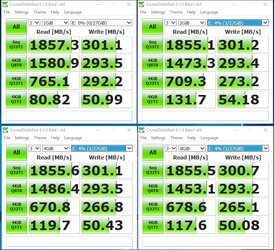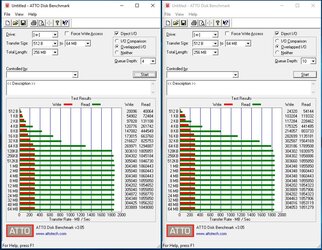I just got Premium Intel VROC module and guess what ... it's not working. There can be couple of reasons as I received info that Intel decided to change compatibility after release ( these modules were not available for about half year after premiere so part of what was said half year ago may not be true anymore ). So this is how it looks like when I try to set RAID on my drives:
- VROC module not installed = can set RAID 0/1 but only using RST Enterprise software and here is one more thing ... software is showing info that trial period is 90 days, so what, RAID won't work after that ?
- VROC module installed = can't set RAID even in software, BIOS is showing info that module is working but no option is available, in software drives have status unsupported, so supported drives are suddenly unsupported when I use module ?
VROC supposed to work on all X299 motherboards. Today I got info that Intel claims it works only on scalable Xeon processors and these processors are not even avilable for this socket ... and it's not guaranteed that will work on all motherboards.
That's all for now. Somehow AMD let to use all this functionality without additional costs and Intel wants us to pay for modules which are not even working.
I know there was a lot said about VROC already but this time I had a chance to check module ( which I got for much lower price than retail ) so I wanted to share.
Maybe something will change as there is still chance on new firmware but for now it's total waste of money.
- VROC module not installed = can set RAID 0/1 but only using RST Enterprise software and here is one more thing ... software is showing info that trial period is 90 days, so what, RAID won't work after that ?
- VROC module installed = can't set RAID even in software, BIOS is showing info that module is working but no option is available, in software drives have status unsupported, so supported drives are suddenly unsupported when I use module ?
VROC supposed to work on all X299 motherboards. Today I got info that Intel claims it works only on scalable Xeon processors and these processors are not even avilable for this socket ... and it's not guaranteed that will work on all motherboards.
That's all for now. Somehow AMD let to use all this functionality without additional costs and Intel wants us to pay for modules which are not even working.
I know there was a lot said about VROC already but this time I had a chance to check module ( which I got for much lower price than retail ) so I wanted to share.
Maybe something will change as there is still chance on new firmware but for now it's total waste of money.

